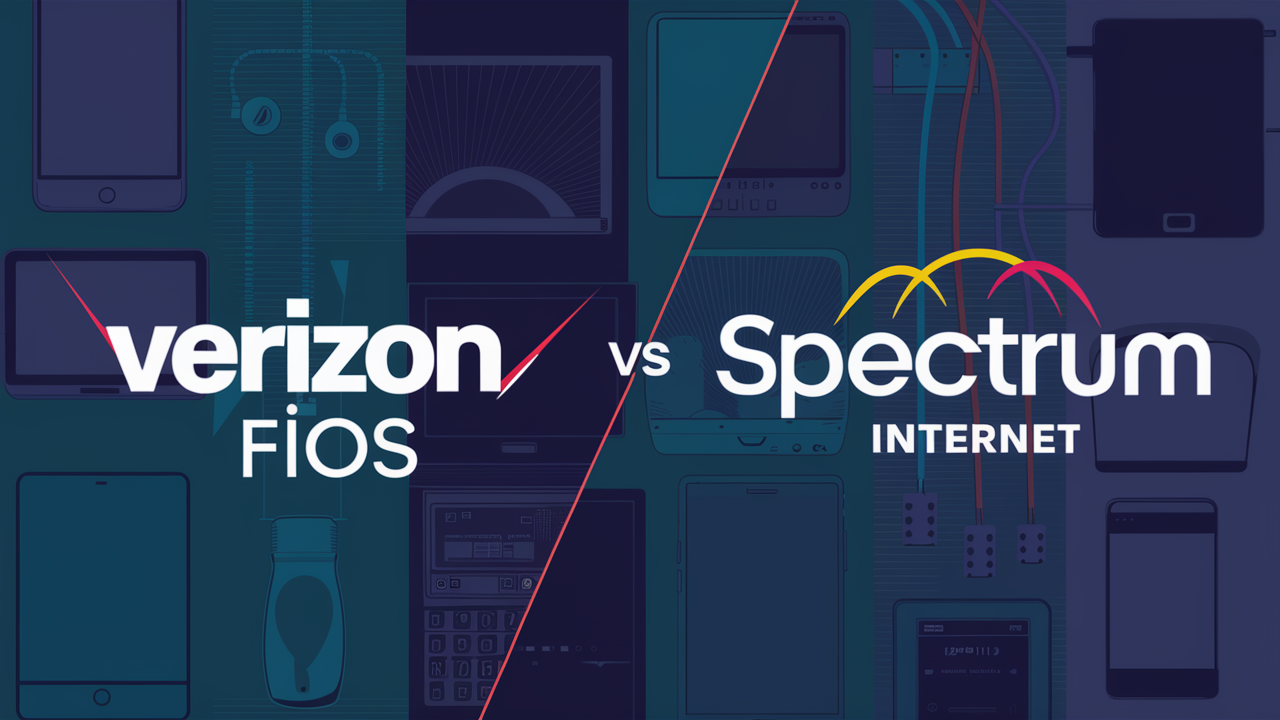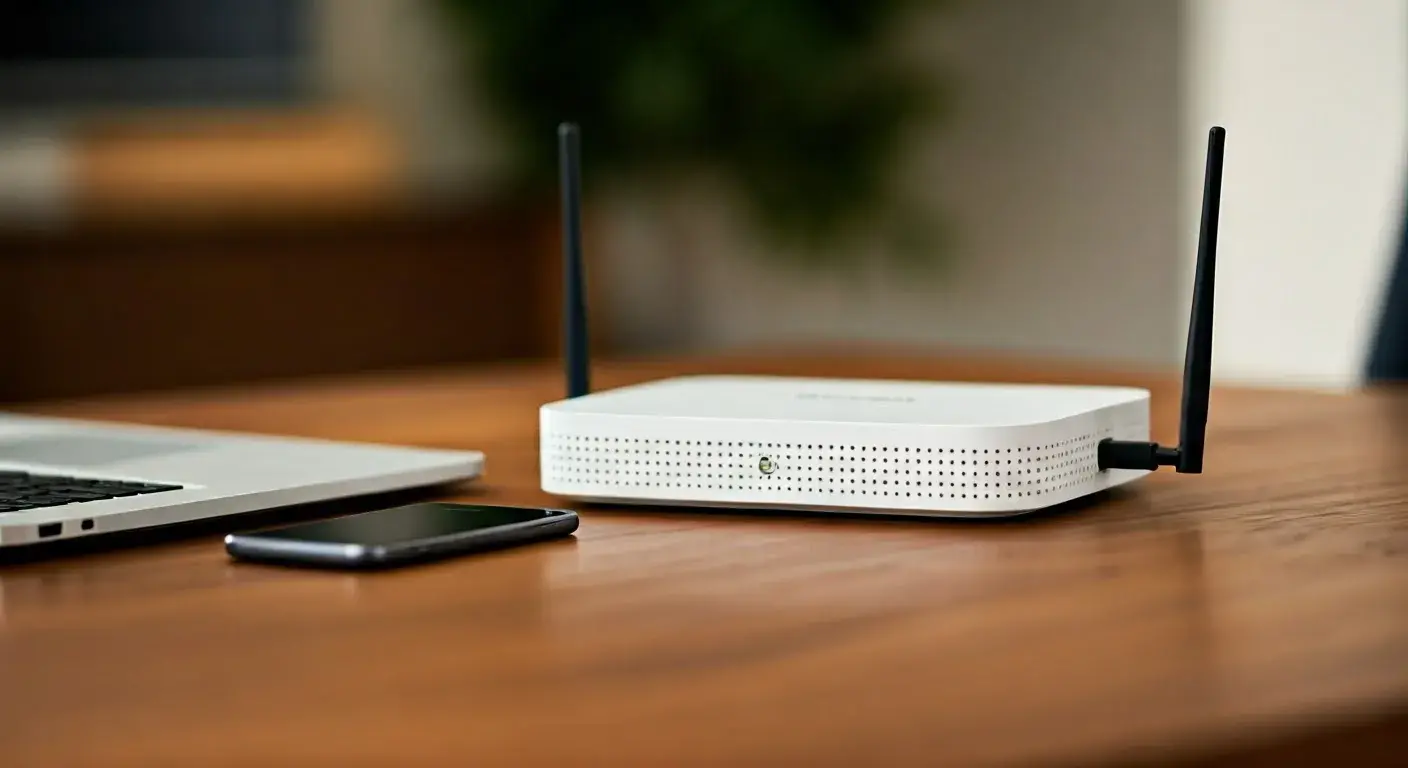Verizon FiOS vs Spectrum Internet: Which One is Best for Your Home?

In today's connected world, having a reliable and fast internet connection is essential. Whether you’re working from home, streaming movies, playing online games, or simply browsing the web, choosing the right internet service provider (ISP) can greatly impact your experience. With so many options on the market, two of the most popular choices are Verizon FiOS and Spectrum Internet. But which one is best for your home? In this guide, we will explore the differences between these two providers and help you make an informed decision based on speed, pricing, customer service, and more.
Overview of Verizon FiOS and Spectrum Internet
Verizon FiOS
Verizon FiOS is known for delivering internet through a 100% fiber-optic network. Fiber-optic technology transmits data faster and more reliably than traditional cables, making FiOS one of the most reliable services for high-speed internet. Launched in 2005, FiOS has grown its reputation for offering blazing-fast speeds and consistent performance, primarily in urban and suburban areas across the northeastern United States.
Spectrum Internet
Spectrum Internet, on the other hand, uses a hybrid fiber-coaxial cable system to provide internet to millions of households across the U.S. Spectrum’s extensive infrastructure gives it wider availability compared to Verizon FiOS. Although it’s not a fully fiber-optic system, Spectrum’s hybrid approach still delivers reliable speeds, making it a popular choice for those outside of fiber coverage areas.
Speed and Performance Comparison
Verizon FiOS Internet Speeds
Verizon FiOS stands out in terms of speed due to its use of pure fiber-optic technology. FiOS offers symmetrical speeds, meaning that upload speeds are just as fast as download speeds. This is particularly advantageous for users who upload large files, use cloud services, or engage in video conferencing. FiOS offers multiple speed tiers, ranging from 300 Mbps to a maximum of 1 Gbps, making it ideal for heavy users such as gamers, streamers, and multi-device households.
Spectrum Internet Speeds
Spectrum provides a range of internet plans with speeds starting at 200 Mbps, and going up to 1 Gbps. However, Spectrum’s speeds are asymmetrical, meaning the upload speeds are significantly slower than download speeds. For most users, this won’t be a big issue, but if you require fast upload speeds for activities like live streaming or frequent file uploads, this might be a disadvantage. Spectrum’s speeds are generally reliable for streaming, gaming, and everyday use.
Performance in Real-World Use
In real-world tests, Verizon FiOS often outperforms Spectrum in terms of overall reliability and speed, especially during peak hours. FiOS users experience less buffering and lag, thanks to the fiber-optic infrastructure. Spectrum, while fast, may experience occasional slowdowns, particularly in high-traffic areas or during peak usage times.
Availability and Coverage
Verizon FiOS Availability
Verizon FiOS is primarily available in major cities and suburban regions, mostly on the East Coast. FiOS has a more limited reach compared to Spectrum, largely due to the costs and challenges of laying fiber-optic cables. As a result, many rural and less densely populated areas cannot access Verizon FiOS, limiting its appeal to those outside its service areas.
Spectrum Internet Availability
One of Spectrum’s biggest advantages is its widespread availability. Spectrum services are available in most urban, suburban, and even rural areas across the U.S. Due to its existing cable infrastructure, Spectrum can offer coverage in regions where Verizon FiOS does not operate, making it the go-to option for many households that don’t have access to fiber-optic networks.
Pricing Plans and Bundles
Verizon FiOS Pricing
Verizon FiOS offers a range of pricing plans, starting from as low as $39.99 for 300 Mbps and going up to $89.99 for 1 Gbps. These plans typically require a contract, and the best rates are often available for customers who bundle their internet with TV or phone services. Verizon also offers discounts for customers who use both FiOS and Verizon Wireless mobile services. While FiOS pricing is competitive for fiber-optic internet, the contracts can be restrictive for those who prefer more flexibility.
Spectrum Internet Pricing
Spectrum offers straightforward pricing with no contracts required, which appeals to customers who prefer month-to-month flexibility. Spectrum’s plans start at $49.99 for 200 Mbps and go up to $89.99 for their gigabit plan. Spectrum also frequently runs promotional offers for new customers, but it’s important to note that prices typically increase after the first year. Additionally, Spectrum provides attractive bundle deals that include internet, TV, and phone services for households looking to consolidate their services.
Which Provider Offers Better Value?
When comparing value, Spectrum offers more flexibility with its no-contract plans, while Verizon FiOS tends to offer more reliable service for the price, especially with its high-speed plans. However, FiOS’s reliance on contracts may be a drawback for those seeking short-term solutions.
Equipment and Installation
Verizon FiOS Equipment
Verizon FiOS requires an Optical Network Terminal (ONT) and a specialized router for fiber-optic connections. Verizon provides the equipment for a rental fee or offers customers the option to buy their own. Installation can be done by a professional or through a self-installation kit for more tech-savvy customers.
Spectrum Internet Equipment
Spectrum’s equipment includes a hybrid fiber-coaxial modem and a router, which customers can rent from Spectrum or purchase separately. Spectrum offers self-installation kits, making it easy for customers to set up their service without needing a professional technician. For those who prefer assistance, Spectrum also provides professional installation for an additional fee.
Ease of Setup and Equipment Costs
Both providers offer relatively simple installation processes, though Spectrum’s self-install kits are more widely praised for being user-friendly. Verizon FiOS equipment may be slightly more expensive due to the nature of fiber technology, but the performance benefits often justify the higher cost.
Customer Service and Support
Verizon FiOS Customer Support
Verizon FiOS has a reputation for reliable customer support, with high ratings for issue resolution and technical assistance. Verizon’s customer service can be accessed through phone, chat, or its mobile app, making it easy to manage your account or troubleshoot issues.
Spectrum Internet Customer Support
Spectrum offers customer support via phone, online chat, and its Spectrum app. While Spectrum’s customer service is generally reliable, it tends to receive more complaints compared to Verizon FiOS, particularly regarding long wait times for support and billing issues.
Who Has the Better Customer Experience?
Verizon FiOS generally has the edge in terms of customer satisfaction, thanks to its faster issue resolution and better service reliability. However, Spectrum’s widespread availability and flexible options make it a popular choice, despite some customer service complaints.
Additional Features and Benefits
Verizon FiOS Perks
Verizon FiOS offers additional services such as advanced parental controls, enhanced Wi-Fi options, and superior security features to protect your home network. FiOS users can also enjoy the convenience of bundling their internet with Verizon’s mobile services for a single bill.
Spectrum Internet Perks
Spectrum offers free access to its nationwide network of Wi-Fi hotspots, which can be a great advantage for customers on the go. Additionally, Spectrum does not impose data caps, meaning you can stream, download, and browse without worrying about exceeding any data limits.
Which Provider Offers More Features?
Verizon FiOS offers more advanced features, especially for security and network management, but Spectrum’s no-data-cap policy and Wi-Fi hotspot access are valuable perks for those who prioritize flexibility.
Pros and Cons of Verizon FiOS
Pros:
- 100% fiber-optic network for superior speed and reliability.
- Symmetrical upload and download speeds.
- High-speed plans are ideal for heavy users.
Cons:
- Limited availability, primarily in urban and suburban areas.
- Requires contracts for the best pricing.
- More expensive equipment and installation.
Pros and Cons of Spectrum Internet
Pros:
- Wide availability, including rural areas.
- No contracts are required.
- Free modem and self-installation options.
Cons:
- Asymmetrical speeds (slower uploads).
- Prices increase after the first year.
- Occasional service slowdowns during peak hours.
Final Verdict: Which Is Best for Your Home?
When to Choose Verizon FiOS
Verizon FiOS is the best choice for users who demand the highest speeds and reliability, especially for activities that require symmetrical upload and download speeds, such as video conferencing or cloud computing. It’s a great option if you live in an area where FiOS is available and don’t mind signing a contract.
When to Choose Spectrum Internet
Spectrum is a more flexible option for those who need reliable internet without committing to a contract. It’s ideal for households in rural areas or places without fiber-optic coverage. Spectrum’s no-data-cap policy and widespread availability make it a strong contender for families and individuals with moderate internet usage needs.
Conclusion
When it comes to choosing between Verizon FiOS and Spectrum Internet, the decision largely depends on your household’s specific needs and location. Verizon FiOS offers superior speed and performance through its fiber-optic network, making it the better option for those who can access it. However, Spectrum’s no-contract plans, nationwide availability, and affordable pricing provide an attractive alternative for many homes. Take the time to assess your internet usage, budget, and local availability before making the final choice for your home internet provider.





